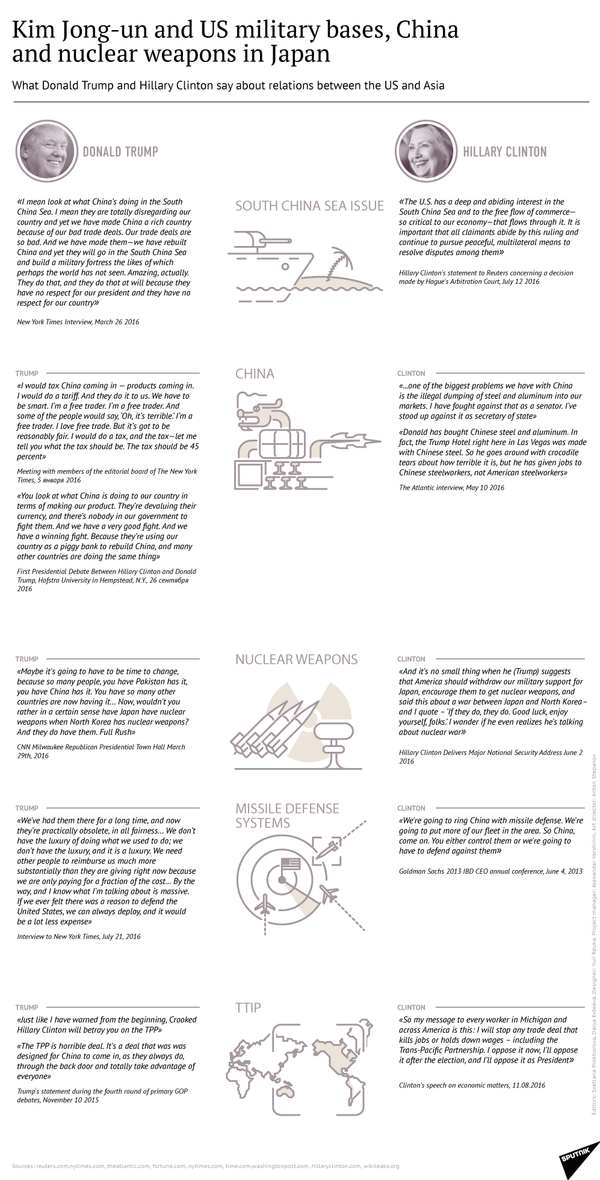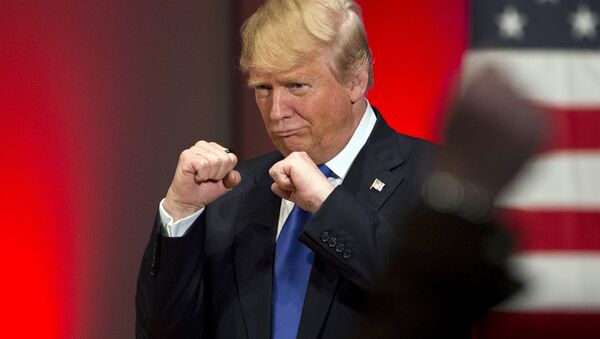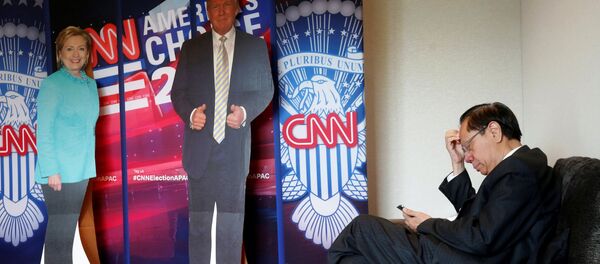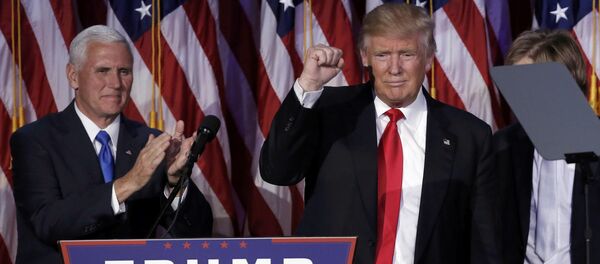Trump's Hard Line on Trade Relations With China
"I think DT [Donald Trump] would take a tough line on trade with China. HC [Hillary Clinton] would not," Dr. Gregory Moore, the head of School of International Studies at the University of Nottingham Ningbo China, said.
Moore’s view was supported by Vice Dean of the Institute of International Affairs at China’s Fudan University Shen Dingli, who said that Trump’s rhetoric on trade relations with China would not be appreciated by Beijing.
In 2015, Trump stressed in an op-ed for The Wall Street Journal that China was a "currency manipulator" and promised to trigger "a series of actions that will start the process of imposing countervailing duties on cheap Chinese imports."
China currently ranks as the United States’ second largest trading partner. The multilateral TPP trade agreement has been characterized by the outgoing US President Barack Obama administration as a way to impose US trade and labor standards in the Asia Pacific, where China maintains strong economic influence.
TPP 'Probably Dead' After Trump's Victory
"With DT, yes, the TPP is probably dead. With HC, I think in her heart she believes in it, but has to suppress support for it because of the leftists in the US she seeks to win support," Moore said.
The TPP would link the United States with the economies of 11 other Pacific Rim nations in a trade zone with lower tariffs and fewer import restrictions. Critics of the TPP agreement claim it undermines domestic companies, laws, regulations and institutions through an extra-judicial process that stacks the deck in favor of multinational corporations.
Trump to Withdraw US Forces From Asia-Pacific
Besides Trump’s rough rhetoric on trade relations with China, there is actually one aspect in his policy toward the Asia-Pacific region, which may have a positive effect on bilateral relations of Washington and Beijing.
"Trump’s victory in the US presidential election means that the US military forces are more likely to leave the Asia-Pacific region, and this is what China would prefer to see," Dingli said.
The United States has numerous military bases in South Korea and Japan — 28,000 and 54,500 troops in each country, respectively, in order to guard against the threat of North Korea and keep watch on China. The strategy of "rebalancing" was said to be a key priority of the Obama administration toward the Asia-Pacific region.





